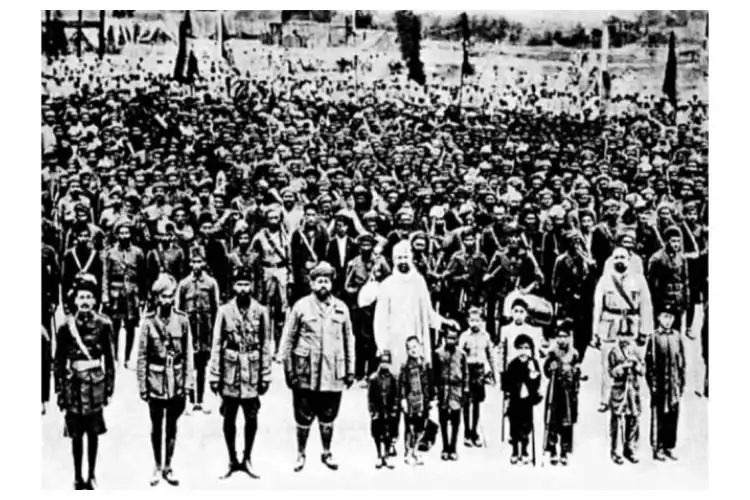
Saquib Salim
National struggles, movements, and agitations are often identified with its male leaders; women do not feature at all in the narratives, and if they do, that is in the footnotes. The Indian freedom struggle is no exception and yet we find mentions of women who played an important role in the freedom struggle.
It was the year 1931, most of the nationalist leaders were out of the jail after Gandhi-Irwin pact but Khan Abdul Ghaffar Khan, leader of Khudai Khidmatgars of North Western Frontier Province, was still behind bars and his followers were being brutalized in every possible way. Khudai Khidmatgars had called a meeting at Utmanzai to demand the release of nationalist leaders languishing in the British jails. The British troops were sent to stop the meeting. The troops ordered the meeting to be stopped but Khudai Khidmatgars would not listen. As expected, the troops started indiscriminately firing bullets at the unarmed protestors.
While the men ran away, a young Pathan girl attending the meeting walked towards the troops. Alarmed at her move, the men shouted, and asked her to run away with them to save her life. At this point, this girl shouted:
“Let me go, please. I am going that way because you are all running away. Let me go. Let a bullet hit me and I shall die, or the British will say that not one among the Pathans is ready to lay down his life for his faith.”
These words rekindled the fire of valour in Pathans present, they immediately stopped and started walking towards the troops along with the girl. Needless to say that those rifle-carrying troops got terrified of these patriotic unarmed people and ran away.
It is shameful that we do not know the name of this patriotic girl and the maximum information we have is that her brother Rabnawaz Khan was a Khudai Khidmatgar.
Also Read: Justice Agha Haider, Courtroom comrade of Bhagat Singh
On another occasion, a Pathan man could not withstand the police torture and turned approver. He was released while every other man from his village remained imprisoned. On reaching home, his wife asked him how he would return while nobody else from the village was released. She checked his thumb and found traces of ink, proving that he had put a thumb impression on some papers. This infuriated the wife, she took a wooden club and started beating her husband. The woman announced that he is not going to live with a ‘coward’ and would leave him. The man returned to the jail.
(Saquib Salim is a historiand and a writer)
